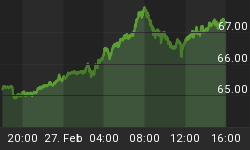The December 1991 collapse of the USSR was an unmitigated disaster for all 15 nations emerging from the desiccated carapace of the Soviet Union.
Now, like a plate of mercury smashed with a hammer, rivulets of the former USSR member state's energy assets two decades later are trickling back under the control and influence of Eurasia largest energy concern, Gazprom.
All the new post-Soviet states faced the triple problems of raging hyperinflation, evolving ad hoc nationalistic policies and, perhaps most importantly, coping with the detritus of Union-wide systems that suddenly deposited fragments of their former selves on the territories of the new nations.
Of these debris fields, the three most important were the former USSR's communications, transport and energy grids. Working out new relationships between the nations emerging from the USSR's demise was a long, convoluted process, given that all three systems as a whole had been designed to serve the Soviet Union as a whole, rather than its constituent republics.
Of the three above-mentioned legacies, the communications and transport networks were relatively easy to resolve - slap a new coat of paint on the railway carriage, name it after the new national railway, problem solved.
The real trauma amongst the post-Soviet states began over the USSR's energy infrastructure. Designed originally to benefit the USSR as an autarkic entity, the Soviet Union only began in the late 1970s to export its energy riches, the energy resources and natural gas and oil pipelines and electrical transmission lines suddenly became national assets, to be exploited for maximum benefit, even if it meant hammering the neighbouring economy of a former fraternal Soviet socialist republic.
And the organization with the 800-lb hammer is the Russian Federation's state-owned national gas company, Gazprom.
Of the post-Soviet space's energy assets, two loomed above all of interest to Gazprom.
In the energy-poor former western republics of the USSR, their extensive pipeline networks, particularly those of Ukraine and Belarus, that had been developed beginning in the mid-1970s not only to supply their indigenous needs but to transmit soviet gas to the burgeoning markets of Europe, despite the disapproval of the Reagan administration.
Farther east, the item of interest were the natural gas assets of the Soviet Central Asian "Stans," which could be used to meet heavily subsidized Soviet domestic requirements while natural gas produced in the Russian SSR could be shipped westward to the rich capitalist Europeans.
Two recent developments have indicated that Gazprom has advanced on the chessboard in both directions.
First, as regards Belarus, earlier this month Belarusian Prime Minister Mikhail Myasnikovich stated that Minsk is prepared to sell the country's Beltransgaz pipeline network to Gazprom, a development which the Belarus government had resisted for two decades.
The reason? The crushing debt, even at subsidized prices, owed by Belarus for Gazprom natural gas shipments.
Farther east, Gazprom has extended its influence in Kazakhstan, the second biggest energy producer in the former Soviet Union and Russia's closest Central Asia ally, despite the vast country being a darling of Western energy companies for its Caspian reserves. Earlier this month Gazprom announced that it had appointed Timur Kulibayev, son-in-law of Kazakh President Nursultan Nazarbayev, to its board of directors. Gazprom CEO Aleksei Miller noted that Kulibayev was a good choice because Russia and Kazakhstan have common oil and gas interests and that Gazprom was planning large projects in Kazakhstan. Given Kazakhstan's landlocked nature, that can mean only one thing - pipelines.
Kulibayev, who is chairman of the board at KazMunaiGas, is also chairman of the supervisory board of Samruk-Kazyn, the Kazakh National Welfare Fund, which controls the state's stakes in a swathe of the country's key industries, including KazMunaiGas and has assets of $80 billion.
What does this mean for Western energy companies, which have ploughed more than $80 billion into developing Kazakh energy assets over the past two decades? Unclear - but as one analyst observed, "Americans play checkers, and the Russians play chess."Under this metaphor, it would seem that Putin is moving closer to declaring "checkmate" over Western penetration of the energy assets of the post-Soviet space.
Source: http://oilprice.com/Energy/Natural-Gas/The-Return-of-Gazprom.html
By. John Daly of OilPrice.com















